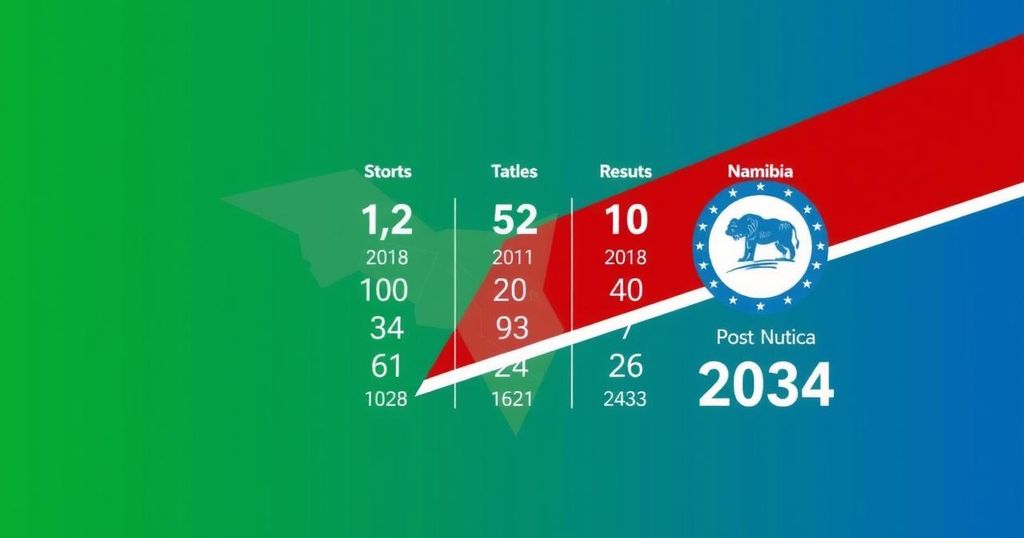World news
AFRICA, ALLIANCE DU CHANGEMENT, ALLIANCE LEPEP, BDP, BOTSWANA DEMOCRATIC PARTY, DEMOCRACY, ELECTIONS, GOVERNANCE, GOVERNMENT, MAURITIUS, MILITANT SOCIALIST MOVEMENT, NAMIBIA, NET, NETUMBO NANDI - NDAITWAH, OPPOSITION, PARLIAMENTARY SEATS, PR, PRAVIND JAGNAUTH, SAHARAN AFRICA, SWAPO
Ethan Kim
0 Comments
Namibia Elections: Swapo’s Challenge Signals Changing Political Dynamics in Africa
Namibia’s Swapo party, amidst logistical and irregularity challenges, retained the presidency but suffered significant parliamentary losses, reflecting a broader trend in Africa where ruling parties face voter backlash amid economic struggles and rising corruption. This year has seen notable electoral defeats for long-standing governments, indicating growing political resilience across the continent.
The recent elections in Namibia showcased a notable shift in the political landscape, as the ruling party, Swapo, retained power yet experienced a significant reduction in influence. With Netumbo Nandi-Ndaitwah emerging as the first female president, obtaining 57% of the presidential vote, the electoral process remains marred by claims of misconduct from opposition parties. This electoral dynamic reflects a broader trend across sub-Saharan Africa, where incumbents are encountering increasing challenges from well-coordinated opposition forces amid economic downturns and rising public intolerance towards corruption. 2024 has proven particularly challenging for long-standing regimes, with many governments witnessing substantial losses or complete defeats in elections, a pattern likened to an “annus horribilis” for various ruling parties across the continent. Botswana’s governing party, which had held power since independence, suffered a drastic loss, consolidating the perception that citizens are demanding change. This political shift, prompted by frustrations over economic mismanagement and diminishing civil liberties, illustrates a profound transformation in the region’s political engagement. As citizens mobilize to express their discontent, the resilience of African democracy may yet surprise analysts overlooking this emergence of multiparty politics, even amid global trends towards authoritarianism.
The article addresses the shifting political climate across sub-Saharan Africa, particularly highlighting the electoral challenges faced by ruling parties, as exemplified by Namibia’s Swapo. It elaborates on the mounting pressures from opposition parties and citizens demanding accountability from governments amid economic crises and corruption allegations. This backdrop is essential for grasping the broader implications of recent elections and the growing assertiveness of opposition entities in their pursuit of political power in the region.
The elections in Namibia and other sub-Saharan nations epitomize a larger movement towards democratic engagement and accountability, as longstanding ruling parties face unprecedented electoral challenges. Economic strains and a rising demand for political integrity continue to stimulate a more vibrant and contested political landscape. As citizens unite against perceived governmental failures, the resilience of democracy in Africa emerges as a significant counterpoint to global authoritarian tendencies, reinforcing the notion that political landscapes can shift dramatically even in historically entrenched settings.
Original Source: www.bbc.com




Post Comment